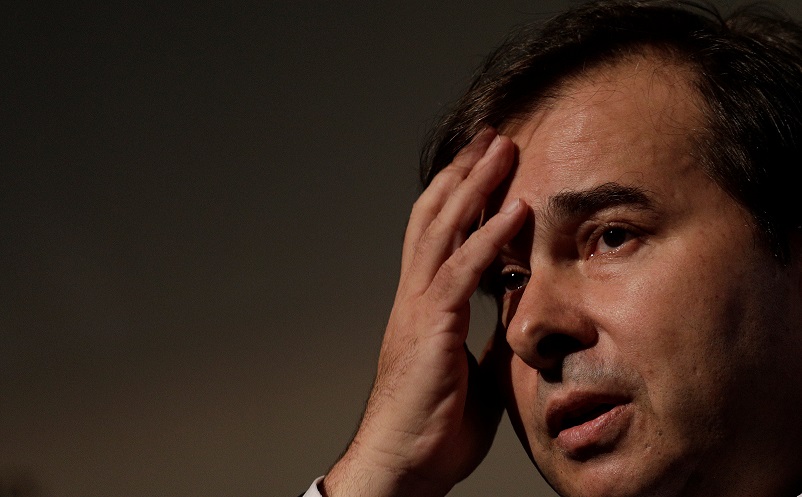RIO DE JANEIRO, BRAZIL – Claiming to be more optimistic than he should regarding the schedule he is presenting, Chamber President Rodrigo Maia said on Monday, February 10th that the tax reform proposal will be passed sometime in the first five months of the year.
According to him, the discussion of the bill – proposed by Deputy Baleia Rossi (MDB) – is progressing, waiting for input from the federal government on income tax and the adoption of a Value Added Tax (VAT). Pointing to taxation as the most significant of reforms, he rejected the possibility of resurrecting the former CPMF (Provisional Contribution on Financial Transactions), the much-derided “tax on checks”.

“I have personally made an effort to engage in serious debate. Sometimes people provide untrue information and keep devising solutions that only solve their own problems. To think of creating a new CPMF, which will be a unified tax, given the amount of fiscal issues that we currently face, and that this will still relieve the payroll, is not working with accurate data”.
In his view, the greatest challenge for passing the reform will be communication to prove that the claim of an increased burden for some economic sectors is untrue. “We are running the simulations to provide relief to all sectors.”
Denying that a tax on high-net-worth individuals is on the table, Maia said the potential to tax profits and dividends by reducing the corporate tax rate is on his agenda. “There is no increase in the tax burden on this operation”.
Before being told of Economy Minister Paulo Guedes’ apology for having called civil servants “parasites”, Maia advocated administrative reform, emphasizing, however, that “the use of derogatory terms hinders the debate”.
“Poorly placed words lead to unnecessary friction. But it’s over now. No one will ever repeat it,” he said. When taking part in a breakfast meeting organized by the Federation of Industries of Rio de Janeiro (FIRJAN), Maia said it is appropriate that the new rules will apply only to future hires, because this allows for a concentration of efforts to approve the tax reform.
A target of attacks by supporters of President Jair Bolsonaro, Maia said that albeit to a lesser extent than last year, the government still sparks conflict on social media. Later, during lunch with representatives of the Commercial Association, he said he gets harassed on social media.
“Some legislators asked me in the first half of last year why, despite all the conflict when the government first went on social media, even to this day, it continued to view welfare reform as crucial and did not work to create a conflict with the government,” he told entrepreneurs.
Maia drew applause when he said that “Brazil’s current situation is no longer conducive to creating political conflicts that undermine Brazilian society”. He also said that Bolsonaro’s choice of not organizing a party-coalition government conferred greater prominence to Congress.
Despite his speech, he said he is in dialogue with the government to approve reforms. “Actually, the fact that the government failed to organize a coalition government has helped us. Congress has achieved a leading role,” he said, adding that the new foreign exchange law could be approved before Carnaval, “even before the Central Bank autonomy bill, which could be passed in March”.

